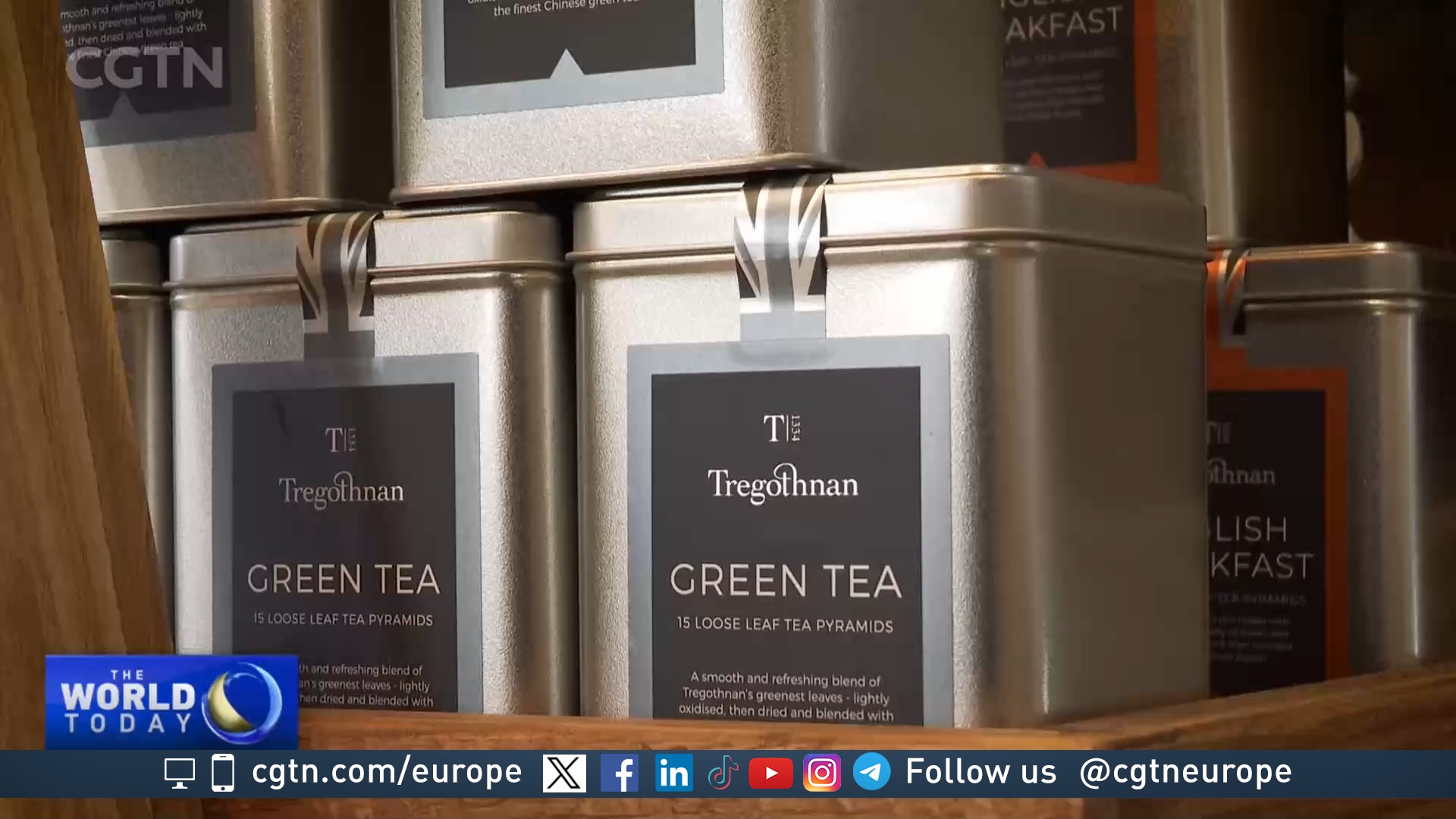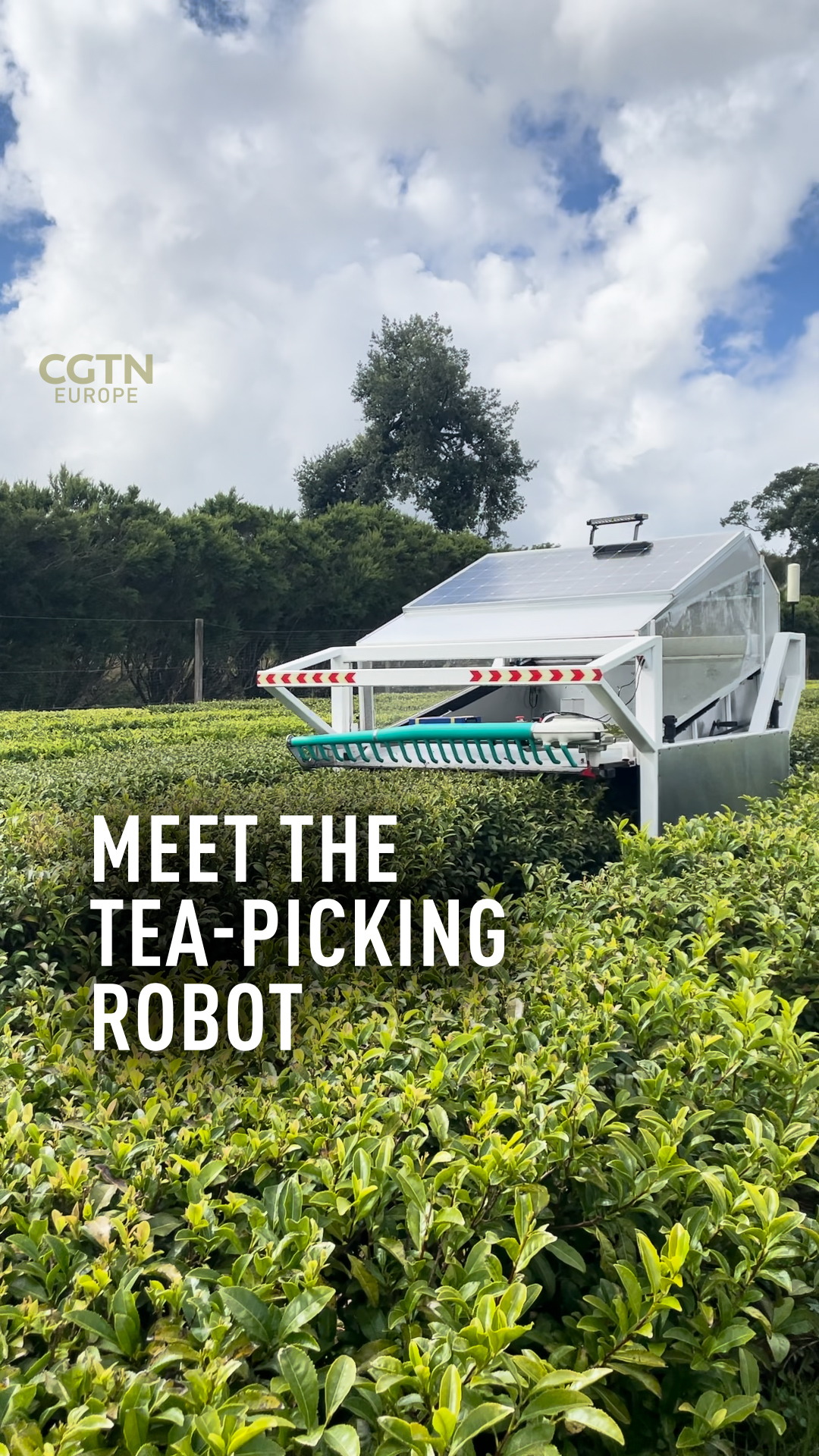03:10

ME (English, confused): English tea? You mean the tea we like drinking?
EDITOR (English, irked): No, I want you to go to Cornwall and do a piece on a tea plantation.
ME: *scratches head* What… we grow it as well?
After approaching half a century on this planet, I thought I knew everything there was to know about Cornwall: pasties, cream teas, mining, surfing and tourism. I've seen it for myself many times.
Turns out, I hadn't seen it all. Certainly not since 1999 when they first started planting tea on the Tregothnan Estate. Fast forward to 2005 and the first crop arrived.
"Everyone said you can't grow tea in England," admits Jonathon Jones, Tregothnan's MD of Trading (as he stands in front of a giant teapot with a Union Jack on it).
"And I thought, hang on a minute – we need to put the Englishness into English tea. If any place can do it, that would be Tregothnan."
Eighteen years later, Tregothnan is producing millions of tons of tea every year from more than 20,000 tea bushes stretching over 40 kilometers. That makes it the only place in Europe to produce commercially viable quantities of high-quality tea.

Jonathon Jones: A man who loves his tea. /CGTN
Jonathon Jones: A man who loves his tea. /CGTN
So how do they do it?
We may be in southwest England but in the September sunshine, surrounded by tea plantations, banana plants and Japanese trees, it feels like I've left the UK for warmer climes.
"Tea is like a difficult child," explains our guide John Bennett, as we walk the plantations on the scenic banks of the River Fal.
"It doesn't want it to be too hot, too cold, too dry, too wet. You've got to have the right sort of soil. We've got that here. They need about 40 inches (100cm) of rain. They get 30 inches and the remaining 25 percent from the morning mist and the dew. That means it's a perfect place to grow tea."
But, he explains, only in this very specific area. If you went a few miles away in any direction, you wouldn't get the ideal microclimate that makes tea possible.
I'm a little teabot
The company is also incredibly proud of what it claims is the world's only solar-powered tea-leaf picker, made by the Tregothnan team and called, brilliantly, The Teabot.
In a good year, the plantations can produce up to four crops so the teabot comes in very handy, especially with the UK continuing to experience a labor shortage.
"In Japan they've got them powered by fossil fuels, and they look pretty good," Jones explains. "But they usually have a driver on them as well. So it's quite a breakthrough."
00:47

Tregothnan's ambitions are, by the company's own admission, limited by how much can be produced because of the size of the plantations. Instead, the firm produces high-quality tea that's sold in top-end retail outlets and hotels across the world. You can see the various brews and blends at the International Tea Centre in Coombe village.
"Right from the beginning, we knew that we would have to be a luxury tea, but an affordable luxury," says Jones, who describes Tregothnan tea as "the most British tea ever."
Even so, the company also makes a Chinese-style white tea that's quite popular in certain markets and a tea called Gyokuro – for the Japanese Prime Minister, says Jones.
"Emerging markets are those that really want to buy into Britishness," he says. "We work with Brompton bikes and we're about to supply 13 shops in China with tea grown in England."
His passion for tea is infectious.
"We love everything about the Chinese tea culture and to think that this tea has been grown in England and returned to China as part of our shared national obsession with tea… I just love that story."

Subscribe to Storyboard: A weekly newsletter bringing you the best of CGTN every Friday